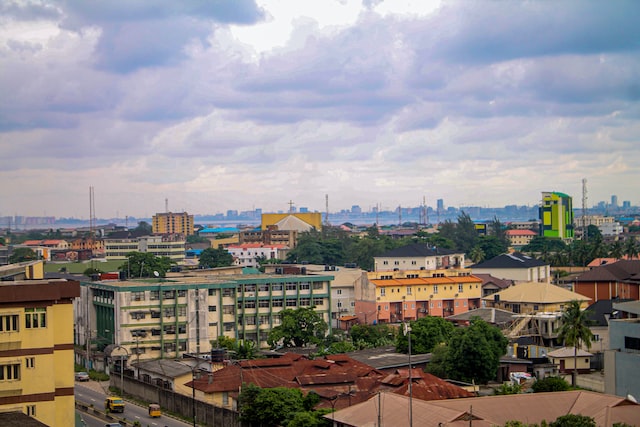Registration for taxation of Entities and taxation of Incomes in Nigeria
“Procedures of economic participation in Nigeria by Chinese Nationals”, Doing business in Nigeria: Pocket Guide for Foreigners, 2023, Issue 2. The Doing business in Nigeria: Pocket Guide for Foreigners is an e-newsletter run by the Law Firm of CJP OGUGBARA & Co. (SUI GENERIS AVOCATS) and Beijing Yu Du Consulting.
Abstract:
Under the 1999 Constitution (as amended), the right to own property is guaranteed. This property refers to the profits and monies realized from investments. No moveable property or any interest in an immovable property shall be taken possession of compulsorily and no right over or interest in any such property shall be acquired compulsorily in any part of Nigeria except in the manner and for the purposes prescribed by a law. This manner and purposes prescribed by a law includes imposition of any tax, rate or duty. The impositions or better still collection of taxes is not limited to citizens and their companies only. Taxes are extended to non-citizen to and their companies who are deemed resident in Nigeria and derive their income respectively from Nigeria. Meanwhile, generally, under the Nigerian Laws, companies upon incorporation are under obligations to register with the relevant tax agencies for the purpose of tax obligations. Also in more recent times, taxes had been extended to nonresident companies of foreign citizen outside the shores of Nigeria. In this thesis, we shall consider the means, way and manner of taxations in Nigeria.
Introduction:
According to Adam Smith in his book titled the Wealth of Nations, there are four major Principles of taxation. He also argues that subjects of every state ought to contribute towards the support of the government, as nearly as possible, in proportion to their respective abilities; that is, in proportion to the revenue which they respectively enjoy under the protection of the state. The tax which each individual is bound to pay ought to be certain, and not arbitrary. The time of payment, the manner of payment, the quantity to be paid, ought all to be clear and plain to the contributor, and to every other person. Also, according to Richard Toby, taxation may result from the carrying on of business activity or trading within the borders of the country; and taxation may result by reason of the fact that a particular payment is derived from the country. Thus, tax liability may arise in Nigeria either because the taxpayer is resident in Nigeria or because he has his source of income in Nigeria. Where local residence is established, such a person whether alien or citizen is taxed on his entire earnings, whether or not all his sources of income are in Nigeria.
Taxation of Nonresident Entities:
While residency and income are the basis for the determination of tax liability or obligation of individual and natural persons, the determining factors for corporate entities are physical presence and significant economic presence. If the company transmits, emits, or receive signals, sounds, messages, images or data of any kind by cable, radio, electromagnetic systems or any other electronic or wireless apparatus to Nigeria in respect of any activity, including electronic commerce, application store, high frequency trading, electronic data storage, online adverts, participative network platform, online payments and so on, to the extent that it has significant economic presence in Nigeria and profit can be attributable to such activity. Furthermore, where the trade is between the company and another person controlled by it and conditions are made or imposed between that company and such persons in their commercial or financial relations which in the opinion of the board is deemed to be artificial or fictitious, so much of the profits adjusted by the board to reflect arm’s length transaction. Finally, where the trade is of technical or professional service imported in favour of a person resident in Nigeria, to the extent that the provider has significant economic presence in Nigeria and profit can be attributable to such activity.
Similarly, non-resident individuals are also liable only where the source of their income is in Nigeria. There is no express provision in the act that differentiates between a person resident in Nigeria and a non-resident. In DASHE & ORS v. JATAU & ORS (2016) LPELR-40180(CA), the court described residence while quoting from Blacks Law, thus “A resident means inter alia, persons dwelling in a place other than one’s home on a long-term basis.” The Court identified two categories. The first, is a person who lives in a particular place, while the second category applies to a person who has a home in a particular place. In the latter case, a resident is not necessarily either a citizen or a domiciliary. It is the foreigner who falls within the explicit provisions of section 10 (1)(a)(ii) of the Personal Income Act to the effect that a person employed in a foreign country and whose remuneration is taxed in that country is nevertheless liable to tax in Nigeria if he stays in Nigeria for a period of 183 days or more in any twelve (12) month period under review.
Personal Income Tax:
Having determined the residency rule, it is also good to examine the taxable income as basis for taxation. The Black’s law dictionary defined income as the gain derived from capital, from Labour or effort, or both combined, including profit or gain through sale or conversation of capital. Individual taxes can only be paid for each year of assessment on the aggregate amounts each of which is the income of every taxable person, for the year, from a source inside or outside Nigeria, including, without restricting the generality of the foregoing: gain, profit, salary, wage, fee, allowance, compensations, bonuses, premiums, benefits, dividends, interests, discount, annuity, charge etc. This also includes “earned income” from trade, business, profession, vocation or employment.
Every individual is required by section 41(3) of Personal Income Tax Act (PITA) 1993 (as amended) to file annual returns of his income for assessment with the State Internal Revenue Service and pay his tax on or before 31st of March of each year. Section 3 of the Personal Income Tax (PITA) 1993 is applicable to self-employed persons as well as people in paid employment such as civil servants or persons employed by companies. Thus, all self-employed persons are required to file self-assessment tax returns with their respective relevant state tax authorities every year within 90 days of the commencement of a new tax year and it is the self- assessment tax returns that constitute the registration for that tax year. For individuals in a paid employment, the Act mandates their respective employers to deduct the payable taxes under the PAYE deductions and remit to the tax authorities within 10 days after the end of each month and payment of the taxable salaries and wages.
In Nigeria, the applicable tax rate progresses from 7% to 24% of taxable income. The income band ranges from N300,000 to above N3.2 million in a year. The rates and the resultant taxes are as contained in the schedule below:
| Annual taxable income | Tax payable per annum | Rate |
| First N300,000 | N21,000 | 7% |
| Next N300,000 | N33,000 | 11% |
| Next N500,000 | N75,000 | 15% |
| Next N500,000 | N95,000 | 19% |
| Next N1,600,000 | N336,000 | 21% |
| Above NGN3,200,000 | 24% |
It is important to note that owing to the new amended various Tax Laws in Nigeria, the New Finance Act, 2020 has exempted people whose annual income is less than N300, 000 from payment of Personal Income Tax.
The Law Firm of CJP OGUGBARA & Co. (SUI GENERIS AVOCATS) was established in December, 2014 as a Partnership Law Firm. The Firm has its Head Office at No. 16B, Lalubu Road, Oke-Ilewo, Abeokuta, Ogun State bordering Lagos State to the South. The Law firm is technology driven with global presence. The essence is to ensure adequate presence in consolidating the interests, instructions and briefs of its well cherished clients.
Since incorporation, the firm has successfully built internationally recognized reputation in Dispute Management through Litigation and Arbitration. It has also earned accolades in Commercial Law Practice that covers Real Estate Investment and Securitization. The Firm has also distinguished itself as a topnotch Tax Advisory and Energy Consultancy law Firm. Apart from these core practice areas, the Firm has exhibited significant experience in business developments. The firm boasts of proficiently trained staff with enormous skills to advise and structure all categories of deals on behalf of clients in the areas of secured credit transactions, collective investment schemes (either as managers or investors), investment pools, syndicated investments, project financing, debt recovery, pension and insurance claims, electricity investment, small and medium scale enterprises start-up advisories and a host of others.
One of the distinguishing factors about the firm is its flexibility and propensity to deplore technologically oriented tools in solving complex legal and sociolegal problems associated with doing business in Nigeria. Another factor is the well treasured versed experience in cross-border transactions, which is readily deployed across African countries under the African Continental Free Trade Areas Treaty to satisfy the needs of its clients.

Photo by Stephen Olatunde on Unsplash








Hi